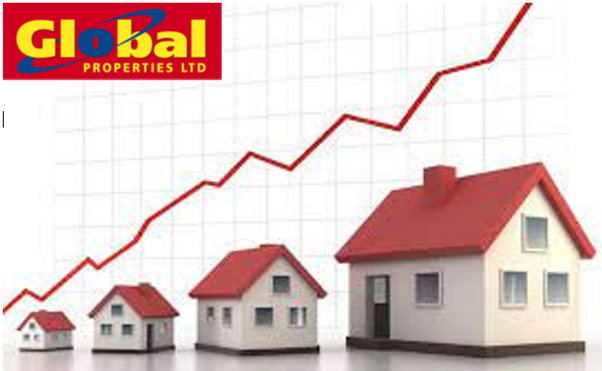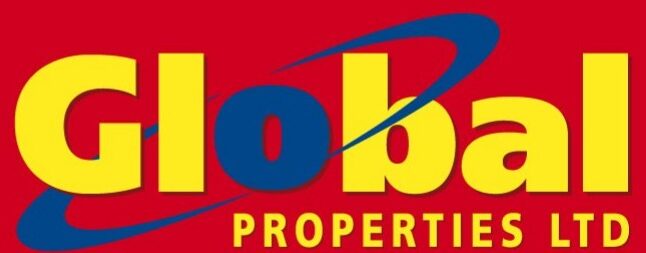How rising inflation affects your Cork property
Inflation in Ireland is now at a 22 year high. We see this vividly in petrol/diesel prices at the forecourt, but also in our electric bills and most other everyday products. Every news item seems to include an inflation theme also.
But in plain terms, what does inflation really mean? and how does it impact the property market? Of course, this rising inflation will impact the cost of buying a home, but what are the other impacts of inflation?

Here are some considerations to help you understand whether you’re making the right moves to hedge against inflation:
What is inflation?
Inflation refers to a decrease in the purchasing power of money, reflected in an increase of the price of goods and services in the economy. The annual rate of inflation is now 7%, according to the latest figures from the Central Statistics Office. This is the highest rate in almost 21 years. March 2022’s CSO figures show that the main contributor to inflation was fuel and energy, but the April figure showed this spreading to other products. Electricity costs were up 22.4%, gas was up 27.8% compared with a year earlier and home-heating oil was up a massive 54% in the year.
An inflation hedge?
As inflation ticks up, every euro you earn loses value and therefore impacts your ability to spend. For those with money, property has historically been viewed as a hedge against inflation. Property values traditionally keep up with inflation.
Property is not a single “product”. It can be a home (whether owned or rented), it can be an investment. Property includes commercial property, occupied by your business or one let to another business.
Homes are expensive, they always have been, but for most people the comparison that is most important is how the cost of home ownership is going to compare to the cost of renting. In the Ireland of 2022, it is still significantly cheaper to buy rather than rent (assuming you can get a mortgage). Rent is more unpredictable than a mortgage and is likely to go up, as we anticipate a continued shortage in the building of homes and broader inflation will continue to impact on rents being charged. In short, wages are rising, the cost of building materials is rising, and these two factors flow directly into the cost of maintaining existing homes and building new homes.
Supply and demand also has a significant impact on rental prices. Rents have already risen dramatically over the last seven years due to the strong jobs market and limited supply of homes to rent, and an even more limited number of new homes available for homeowners to buy.
While the housing market was already seeing short supply and high demand before 2020, the pandemic’s arrival exacerbated these trends. Some renters entered the housing market in search of a home of their own, while plenty of homeowners sought opportunities to trade up and increase their space. As this increasing demand took shape, we saw many existing homeowners staying put, therefore limiting the supply of available properties.
The resulting housing market inflation amounts to a basic case of supply and demand at work, adding fuel to an already raging fire.

How does inflation impact the Cork Property market?
Firstly, lets’ look at homeowners:
Inflation is actually a good development for property owners. The most obvious benefit is the fact that the value of your home normally rises with or above the inflation rate. With mortgage interest rates low, and house prices rising by between 12 to 14% the equity property owners have in their home rises substantially, which is great for property owners whether looking to sell or not. Also, for homeowners and investors thinking of selling, low supply and high demand means that sellers can get a good price.
This makes it a great time to sell, but a much more difficult time to buy.
For Tenants:
For tenants, rising rents, low stock and house price rises are a perfect storm. The possibility of ever buying a home seems hopelessly far off in the distance. As soon as you save enough for a deposit, the house prices have gone up so much that you need to save for another 6 months for the deposit, and prices go up again. It is not a good place to be.
Putting off buying a home today, can cost dearly. If the price of a suitable home is €300,000 today and the same property is €330,000 next year, that has obviously cost you, as has the cost of renting in the meantime (possibly another €15/20k). But also, we have seen in the past, that just because you can get a suitable mortgage now, does not mean you will be able to get one in the future. If there is a shock to the economy, or a change in your circumstances, will you be able to get a mortgage next year?

For investors:
If you have a property even with a mortgage, with interest rates as low as they currently are, you will find yourself paying a low rate even as your property’s value steadily rises. In this current inflationary market, we are not yet seeing mortgage rates rise alongside inflation, and as a result, your return on investment (ROI) can be expected to soar.
In short, with property price increases currently running at about 12% and interest rates of 2%, you are getting a 10% capital gain p.a.
For prospective investors:
Not surprisingly, the circumstances for prospective investors in an inflationary market are very different from those of existing property owners. With that reality in mind, the most important factor this group must consider is timing.
How long do you plan to own the prospective property investment? If you are in it for the long haul, you should expect the same value increases those existing owners are experiencing. If you are looking at a shorter investment time horizon, then we should caution “buyer beware.” One of the dangers of short-term investing in an inflationary property market is the risk of getting caught in a real estate bubble.
House prices have seen strong rises over such a short period of time. While this can all be explained by jobs, the economy and may not be inherently concerning, it underscores the importance of understanding your expected investment time horizon and adjusting your plans accordingly.
A question for prospective investors is; what is your money earning at present? With zero interest rates for money in the bank, and inflation of 7%, one hundred thousand euro today only has the purchasing power of €93,000 this time next year, and €87,500 in two years’ time. Your money is disappearing. Think about this while you weigh up the options.
So, what’s next?
As we map out the market’s near- and long-term future, it is certainly understandable for the ghosts of 2008/2012 housing crash to haunt buyers, sellers and investors alike. Yet while a market decline is difficult to predict, it’s worth noting that there isn’t much data suggesting one is imminent.
For starters, the current asset market is vastly different from what we saw in 2008-2012, right before the Great Crash. The economy is growing, unemployment remains low, wages are growing, and optimism remains high as reopening efforts continue and better opportunities emerge.
As with any big financial decision, it’s important to keep your guard up for economic risks. However, smart planning, time management and seeking advice from a professional adviser or experienced estate agent can help keep you and your money safe.

Con Nagle has a master’s degree in economics and has been a director of Global Properties for 25 years. Global Properties have been advising and serving the people of Cork since 1972. If you want to buy, sell or have us source an investment property for you, just give Con a call for a coffee/consultation on 021 4877133 or con@globalproperties.ie

